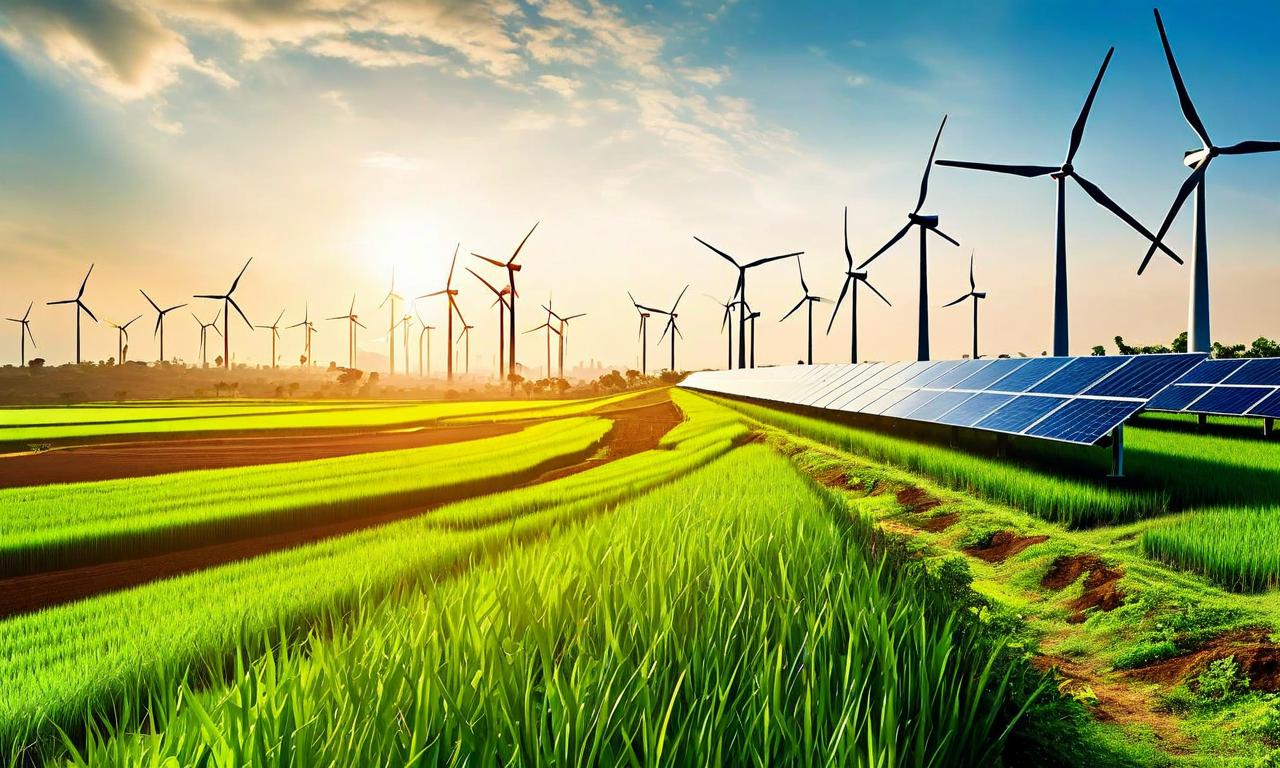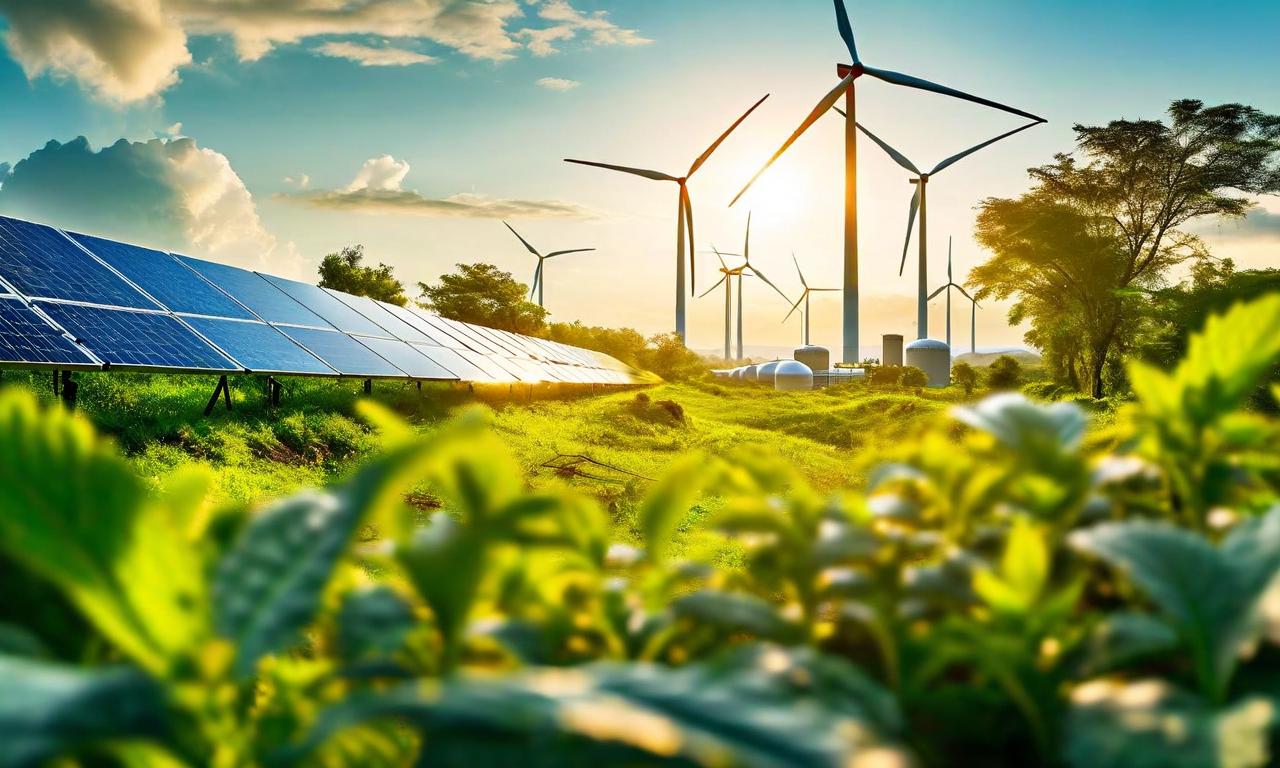Distressed Green Energy Assets Fetch Double Reserve Prices as Investor Interest Surges
India's renewable energy sector is experiencing increased investor interest, particularly in distressed assets. Recent auctions have seen prices significantly exceeding reserve amounts. Regen Powertech was sold for ₹240.00 crore, nearly double its opening bid. Wind World (India)'s debt received bids over ₹1,250.00 crore, up from NARCL's acquisition at ₹670.00 crore. Edelweiss sold 10% of Wind World's debt for ₹143.00 crore, four times above the reserve price. The sector added 28.70 GW of capacity, a 55% increase. India aims for 500 GW of non-fossil fuel capacity by 2030 and net zero emissions by 2070. The power sector's financial health has improved with net NPAs declining to 1.30% in 2022.

*this image is generated using AI for illustrative purposes only.
The renewable energy sector in India is witnessing a surge in investor interest, particularly in distressed assets, with auction prices significantly exceeding reserve amounts. This trend underscores the growing confidence in the long-term potential of green energy investments.
Impressive Auction Results
Recent auctions of distressed renewable energy assets have yielded remarkable results:
- Regen Powertech, a wind turbine manufacturer, was sold for ₹240.00 crore, nearly doubling its opening bid of ₹125.00 crore.
- Wind World (India)'s debt, which was acquired by National Asset Reconstruction Company Ltd (NARCL) for ₹670.00 crore 18 months ago, has now received bids exceeding ₹1,250.00 crore.
- Edelweiss managed to sell 10% of Wind World's debt for ₹143.00 crore, four times above the reserve price of ₹35.00 crore.
- State Bank of India (SBI) recovered close to 40% on outstanding loans through a Swiss auction.
NARCL's Strategic Move
NARCL has invited expressions of interest to sell ₹3,763.00 crore worth of debt under the Swiss Challenge method. Omkara Asset Reconstruction Company (ARC) has been positioned as the anchor bidder at ₹1,250.00 crore, setting a competitive baseline for the auction.
Sector Growth and Future Prospects
The renewable energy sector in India is experiencing robust growth:
- The sector added 28.70 GW of capacity, a 55% increase from the 18.50 GW added previously.
- India has set ambitious targets of achieving 500 GW of non-fossil fuel capacity by 2030 and net zero emissions by 2070.
Improving Financial Health
The power sector, which includes renewable energy, has shown signs of financial improvement:
- Net Non-Performing Assets (NPAs) in the power sector have declined to 1.30% in 2022.
- This improvement comes after previous struggles with project delays and cost overruns.
Investor Confidence
The strong investor interest in distressed renewable energy assets reflects growing confidence in the sector's potential. Factors contributing to this trend may include:
- Government support and favorable policies for renewable energy
- Increasing global focus on sustainable investments
- Technological advancements reducing the cost of renewable energy production
As India continues its push towards clean energy, the renewable sector is likely to remain an attractive proposition for investors looking for long-term growth opportunities in the green economy.





























